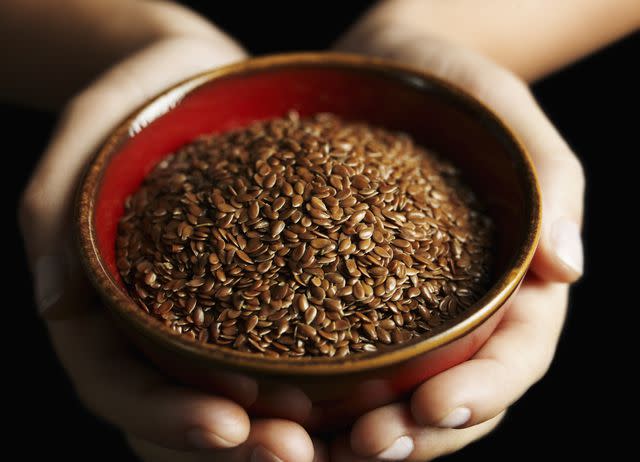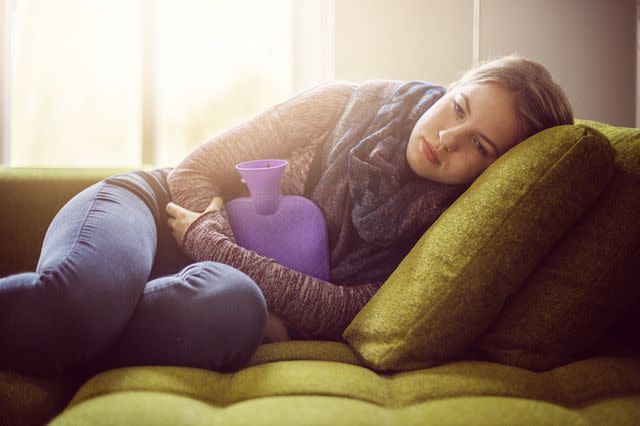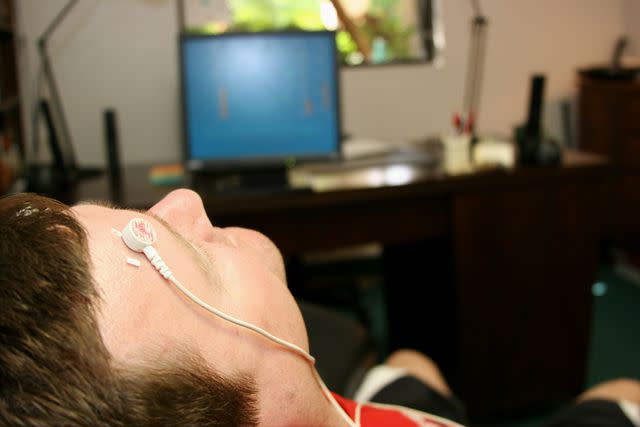8 Best Things You Can Do to Ease Your Constipation
Heating Pads, Fiber, and Other Simple Solutions
Medically reviewed by Robert Burakoff, MDFact checked by Jillian DaraMedically reviewed by Robert Burakoff, MDFact checked by Jillian Dara
Constipation can be painful and frustrating, but there are options for treatment that can help. This includes consuming fiber and other substances that help soften stool, or speeding up the movement of your intestine (known as peristalsis).
Constipation occurs when the muscular contractions of your intestine slow down, causing too much water to be absorbed from your stool. It can also occur when you are dehydrated or eat fatty or fried foods that promote constipation.
This article looks at eight remedies you can use to relieve constipation at home.
Related: How Long Does Constipation Last?
Eat More Fruit

Certain types of fruits contain a lot of soluble fiber. This is the type of fiber that absorbs water from the intestine, making stools moist and easier to pass. Fruits also contain a lot of water that helps make stools softer.
The best fruits for constipation include:
Apples (with skin)
Apricot
Grapefruit
Kiwis
Oranges
Papaya
Peaches
Pears
Pineapple
Plums
Prunes
Raisins
Prune, apple and pear juice are also helpful.
Eat More Vegetables

Enrique Díaz / 7cero/Moment/Getty Images
Vegetables and legumes are especially high in soluble fiber. Certain types can be eaten raw or cooked, while others (like beans) need to be cooked to improve digestion and reduce gassiness.
Vegetables you should eat for constipation include:
Asparagus
Avocado
Broccoli
Brussels sprouts
Carrots
Cannellini beans
Green beans
Kale
Pinto beans
Spinach
Swiss chard
Find Other Sources of Fiber

Another way to get more fiber into your diet is to eat seeds. You can sprinkle these on top of foods or use them as snacks whenever you are constipated.
Seeds that are especially high in soluble fiber include:
Pumpkin seeds
Sesame seeds
Sunflower seeds
You can also increase your fiber intake with over-the-counter fiber supplements. Psyllium is one of the more commonly used ingredients, found in brand-name supplements like Metamucil, Fiberall, and others.
Related: The Health Benefits of Fiber Supplements
Take Magnesium

Some people report that magnesium supplements help relieve constipation, Magnesium is an essential mineral that helps regulate involuntary muscle functions like heartbeats and peristalsis.
Magnesium supplements may help increase intestinal contractions while drawing water into the colon, making stools softer.
The recommended daily intake of magnesium for adults from all sources is 350 milligrams (mg) from all sources. If you decide to take magnesium for constipation, use no more than 2,000 mg per day. Taking more can lead to nausea, fatigue, muscle weakness, and irregular heartbeats.
Use a Heating Pad

Can you relieve constipation with a heating pad? Possibly. Some small studies have shown raising your body temperature can ease constipation. The warmth is thought to increase blood circulation, relax intestinal muscles, and increase peristalsis. However, most of the support for using heating pads is based on personal experience and not research.
A 2024 study in Gynecology & Obstetrics reported that heat packs applied to the abdomen four times daily helped ease constipation in females following gynecologic surgery.
Avoid using heating pads for longer than 30 minutes as it could end up causing diarrhea or skin damage. You should also place a towel between your skin and the heat source to avoid accidental burns.
Learn More: 10 Best Heating Pads Reviewed
Retrain Your Bowels

Constipation often occurs because you spend too much time at your desk "holding it in." This allows your intestines more time to draw water from your stool. In time, constipation can become chronic (persistent) and harder to treat.
To change this pattern, try bowel retraining, a strategy used to promote regular bowel movements:
Find a regular time each day to sit on the toilet. The morning just after breakfast is usually the best time as coffee and food stimulate the gastrocolic reflex.
Around 10 to 20 minutes after eating, sit on the toilet for 15 minutes or so. Be patient and try to relax, Do not strain to have a bowel movement.
If you do not have a bowel movement, get up and go about your regular activities.
Try again after lunch or dinner.
If you do not have a bowel movement after two or three days, try a Fleet’s Enema to give your system a kickstart.
By practicing this daily and increasing your fiber intake, you will eventually get to a point where you will have regular bowel movements.
Try Biofeedback

Biofeedback can be effective for treating constipation caused by dyssynergic defecation. This is when the pelvic floor muscles are unable to coordinate with surrounding muscles and nerves to produce a normal bowel movement.
Biofeedback is a mind-body therapy used to exert control over some of your body's involuntary functions such as heart rate and bowel movements. It involves a biofeedback machine equipped with various tools and sensors, including an electromyograph (EMG) used to measure muscle contractions.
With practice and close observation, biofeedback may teach you how to relax the muscles involved with bowel movements and overcome dyssynergic defecation.
Take a Laxative
Laxatives are a last resort when all other home remedies fail. They are only intended for short-term relief as their overuse can end up having the opposite effect—causing rather than relieving constipation.
There are several types of laxatives:
Stimulant laxatives like Dulcolax (bisacodyl) stimulate bowel contractions to speed stools through the intestines.
Osmotic laxatives like Miralax (polyethylene glycol) draw water from the intestine to make stools softer.
Lubricant laxatives like mineral oil coat the intestines and make hardened stools more slippery.
Related: Guide to Over-the-Counter Laxatives
Summary
Constipation is not only frustrating but possibly painful. It can often be treated at home with diet and other interventions. Treatment options include increasing your fruit and vegetable intake, taking magnesium or fiber supplements, using a heating pad, and practicing bowel retraining. Laxatives are considered a last resort.
Read the original article on Verywell Health.
